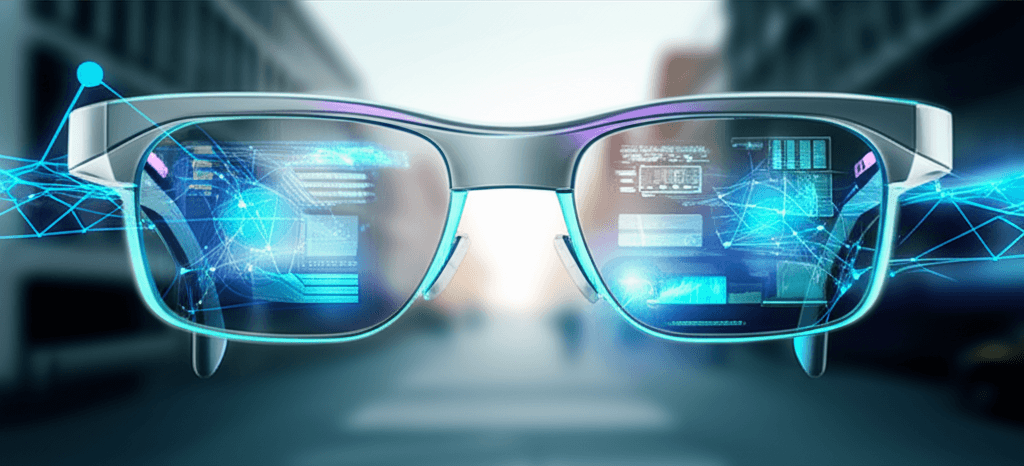Meta Makes $3.5 Billion Bet, Aims to Put AI on Your Face with Smart Glasses
Meta invests $3.5 billion in EssilorLuxottica, securing its future in wearable AI and the next computing platform.
July 9, 2025

Meta Platforms has made a significant financial maneuver to solidify its future in wearable artificial intelligence, investing approximately $3.5 billion to acquire a minority stake in EssilorLuxottica, the world's largest eyewear manufacturer and parent company of iconic brands Ray-Ban and Oakley.[1][2][3][4] This investment secures Meta a stake of just under 3% in the Franco-Italian eyewear giant, deepening a partnership that is central to Meta's long-term vision for AI-integrated smart glasses.[5][1] The deal underscores a major strategic push by the tech company to move beyond software and social media, establishing a firm foothold in the hardware market that it can control, a stark contrast to its reliance on competitors like Apple and Google for the distribution of its apps on smartphones.[4][6] This move signals a powerful commitment to the belief that smart glasses will become the next major computing platform.
The collaboration between the two industry titans, which began in 2019, has already produced the Ray-Ban Meta smart glasses, a product that has shown promising consumer appetite.[5][7] The latest generation of these glasses, which allows users to take photos, make calls, listen to music, and interact with Meta's AI assistant, has reportedly sold more units in a few months than its predecessor did in two years.[7][8] This success has paved the way for an expanded and long-term partnership, with both companies agreeing to collaborate on multi-generational smart eyewear for the next decade.[9][10] The investment provides Meta with crucial access to EssilorLuxottica's deep manufacturing expertise and extensive global distribution network, which are fundamental for transforming smart glasses from a niche gadget into a mass-market product.[4][6] For EssilorLuxottica, the strengthened alliance offers a deeper integration into the technology sector, positioning the eyewear leader at the forefront of a potentially revolutionary product category.[4]
This strategic investment is a cornerstone of CEO Mark Zuckerberg's broader vision for the future of technology, where he predicts that smart glasses will eventually replace smartphones as the primary interface for digital interaction within the next decade.[11][12] By embedding AI directly into a user's field of view, Meta aims to create a more seamless and intuitive way to blend the digital and physical worlds.[11] The current Ray-Ban Meta glasses serve as an important stepping stone, allowing users to get real-time information and translation based on their surroundings through voice commands to the Meta AI.[5][7][13] This functionality is seen as a precursor to true augmented reality (AR) glasses, a project Meta is developing under the codename "Orion," which aims to overlay digital graphics and information directly onto the real world.[14][15] The massive investment in EssilorLuxottica is part of a much larger financial commitment by Meta's Reality Labs division, which has poured tens of billions into developing the technology needed for this post-smartphone era.[16]
The implications of this deal resonate throughout the technology and AI industries, signaling an acceleration in the race to define the next generation of personal computing. By combining EssilorLuxottica's fashion and brand power with its own advanced AI, Meta is creating a product that aims to overcome the "cool" factor, a hurdle that has historically challenged wearable tech adoption.[8] The partnership has already expanded beyond fashion-focused Ray-Bans to include performance-oriented models with the Oakley brand, targeting athletes with features like higher resolution cameras and water resistance.[2][17] This diversification shows a clear strategy to embed AI assistants into various aspects of daily life. As these devices become more capable, they also hold significant promise as assistive technology, with current models already being used by individuals with visual impairments to identify objects and read text.[13][18] The development path includes more advanced AR features, such as real-time navigation and object recognition, further blurring the lines between standalone devices and integrated AI companions.[19]
In conclusion, Meta's $3.5 billion investment in EssilorLuxottica is far more than a simple financial transaction; it is a declaration of intent to lead the charge into the era of wearable AI.[6] By securing a stake in the world's premier eyewear company, Meta is not only ensuring the production and distribution of its smart glasses but is also betting heavily on a future where its technology is the lens through which people see and interact with the world.[4][6] This move solidifies a critical hardware partnership, accelerates the development of more advanced AI and AR capabilities, and positions both companies to potentially capture a market that could one day eclipse the smartphone.[11][12] The success of this venture will depend on continued technological innovation, navigating complex privacy concerns, and ultimately, convincing the world to embrace a new paradigm of computing worn on the face.
Sources
[4]
[6]
[7]
[11]
[12]
[13]
[14]
[15]
[16]
[19]